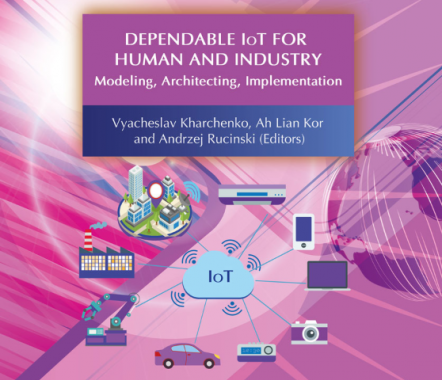
LUMS Electrical Engineering (EE) faculty and student in collaboration with Hochschule Offenburg, Germany have published a book chapter on the theme of Dependable Internet-of-Things (IoT) for Humans and Industry.
The work resulted from a DAAD-funded project carried out at LUMS during 2017-18 overlapping with the MS thesis of Awais Ahmad, MS EE 2015 graduate under the supervision of Dr. Adeel Pasha, Assistant Professor, Department of Electrical Engineering. The thesis and book chapter is tilted, “Design and Simulation of an Energy-Efficient Sensor Network Routing Protocol for Large-Scale Distributed Environmental Monitoring Systems.” Dr. Pasha, Dr. Shahid Masud, Dean, Syed Babar Ali School of Science and Engineering (SBASSE) and Prof. Axel Sikora, Hochschule Offenburg, Germany also contributed as co-authors in this book chapter.
The chapter discusses the fact that due to climate change and scarcity of water reservoirs, monitoring and control of large-scale irrigation systems, is now becoming a major focal area for researchers in Cyber-Physical Systems (CPS) domain. It is a unique yet daunting task to design an energy-efficient distributed system for large-scale environmental monitoring that lasts for decades. However, the evolution in digital electronics and Micro-Electro-Mechanical (MEM) systems has enabled the researchers in CPS domain to use technologies like Internet of Things (IoT) in automating such large-scale systems.
The research further elaborates that Wireless Sensor Networks (WSNs) are also rapidly finding their way in the field of irrigation and play a key role as data gathering technology in CPS domain. They are efficient for reliable monitoring and early climate change detection, giving farmers an edge to take precautionary measures. However, designing an energy-efficient WSN system requires a cross-layer effort and energy-aware routing protocols play a vital role in the overall energy optimisation of a WSN. Reliable and energy efficient transmission of data in energy constrained WSN is the primary challenge to achieve a next level efficiency control and monitoring system. In the book chapter, the researchers are proposing a new hierarchical routing protocol that is suitable for large area environmental monitoring such as distributed monitoring of large-scale irrigation network existing in Punjab. The proposed protocol resolves the issues faced by traditional hierarchical routing protocols such as LEACH, M-LEACH, and I-LEACH, and enhances the lifespan of sensor nodes that, in turn, results in an increased lifespan of the whole WSN system. Increasing the lifespan and improving the Quality of Service also increase the reliability of the WSN. However, it has the inverse relation with the power consumption. Retransmissions can reduce the loss in data packets, but it will increase the power consumption of WSN, but periodic transmissions reduce the data packet loss, hence increase the reliability of the WSN while reducing the power consumption of overall WSN. The open-source NS3 simulator can be used for simulation purposes and results show that our proposed protocol results in an average gain of 27.8% or higher in lifespan of the overall network when compared against the protocols reported in the literature.
Additional details on the book can be found on publisher’s website here.








